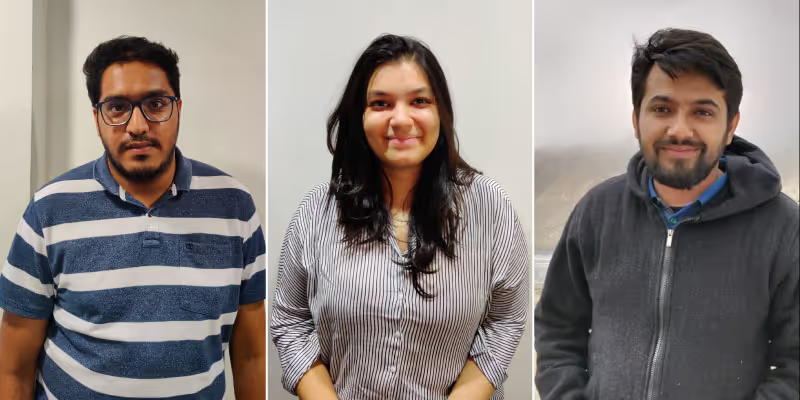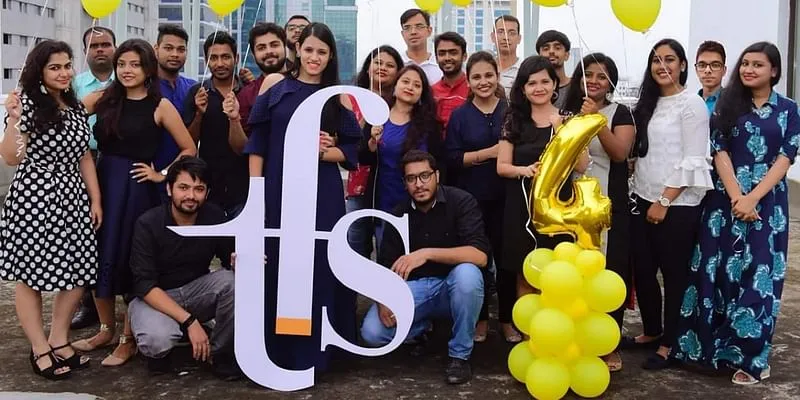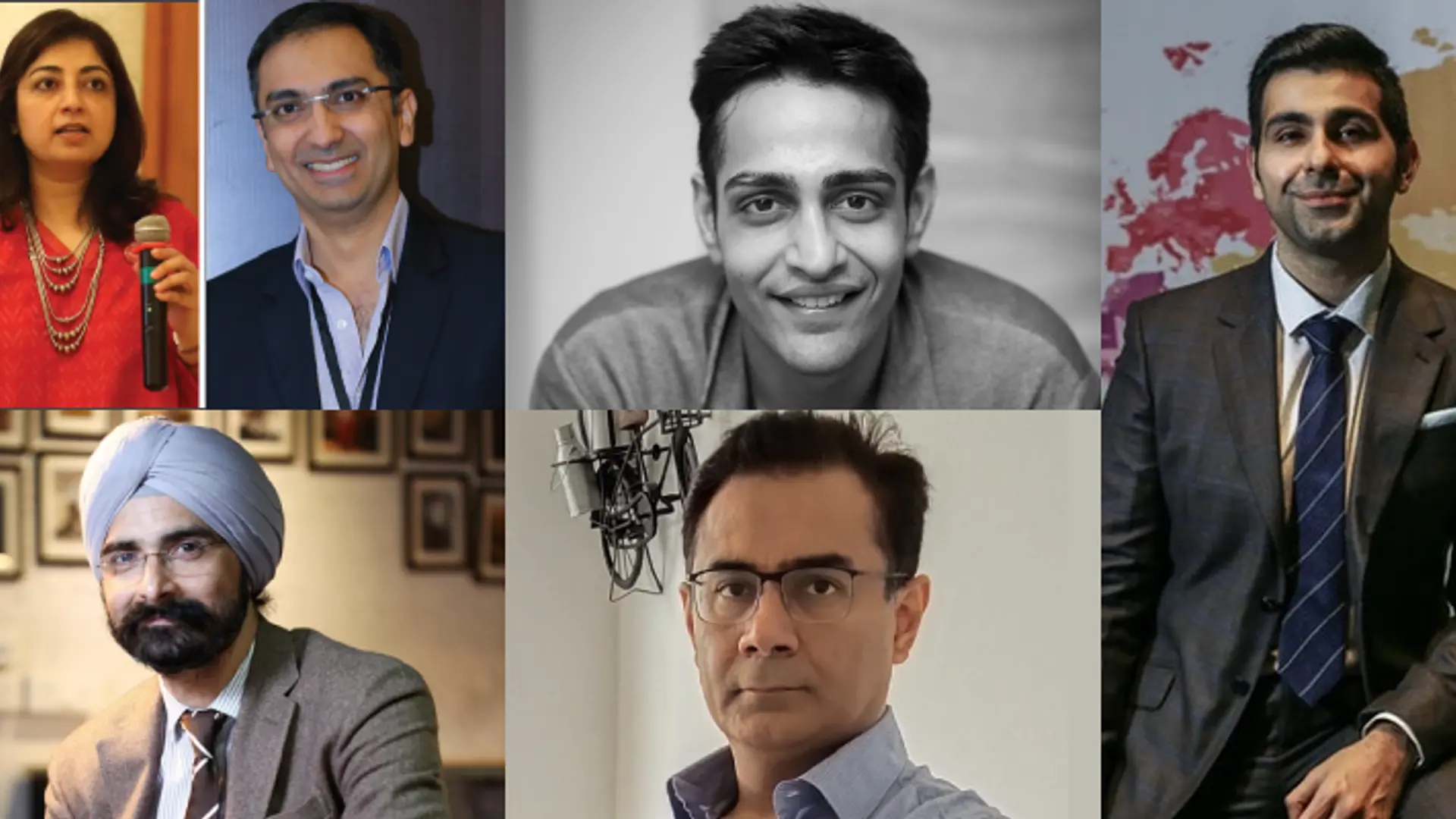These founders invested Rs 20k and built Rs 3 Cr revenue business with Uber, OYO, CII as clients
Started in 2014 by Siddhant Jain, Husain Lucky, and Aashita Sethi, Three Fourth Solutions is a Kolkata-based marketing agency. The firm, which has 50 employees, claims to have worked with over 400 clients from various sectors in just over 5 years.
It was during Siddhant Jain‘s time working with AIESEC, a youth-run NGO, that he met Husain Lucky. The two realised that they had a lot in common: they were both BTech graduates, had a passion for marketing, and believed East India – and their hometown Kolkata – had a dearth of marketing agencies.
Wanting to change the way marketing was perceived and serviced in the city, Siddhant and Husain started their own marketing agency – (TFS) – in Kolkata in 2014. They roped in a third founder, Aashita Sethi, who had a diploma in design.
“We laid the foundation of TFS, sensing a need in the market for an organisation that provided a variety of marketing services under a single umbrella. Otherwise, the coordination and delivery of solutions would become a difficult proposition,” says Siddhant Jain, co-founder and director, TFS.
The trio, who were all in their mid-20s, bootstrapped the company with just Rs 20,000, which they earned by hosting a cooking workshop in collaboration with a star chef.

Three Fourth Solutions cofounders and directors Husain Lucky (left) and Siddhant Jain (right) with partner Pragati Agarwala (centre)
Doing everything for the first time and making mistakes and learning from them, the young founders grew TFS into a Rs 3 crore revenue business with over 50 employees.
TFS claims to have worked with over 400 clients from various sectors, some of which include , , Inc 5, Vespa, Pernod Ricard, CII, Kwality Wall’s, and more.
In an exclusive interaction with SMBStory, Siddhant recounts the early days of TFS and explains how the founders created a successful business.
Edited excerpts from the interview:
SMBStory [SMBS]: What were the early years like with TFS?
Siddhant Jain [SJ]: When we started, we had no real educational background in marketing. But I used to work with AB InBev as a regional trade marketing manager. Husain was a business development manager for Nick IT Solutions, and Aashita had no prior work experience.
So we learned everything by being on the field, right from the basics of digital marketing and performance marketing to media buying, print solutions, and creating videos.
SMBS: What were the challenges you faced during these initial days?
SJ: Our basic investment of Rs 20,000 went into setting up the bare minimum infrastructure. We started with a 100 sq ft office.
A big hurdle was finding the right kind of employees from the available talent pool who could fit in and adjust to what we could offer. Being a bootstrapped company, we didn’t have a lot of perks to offer to potential candidates, and this was a major concern.
We had to look at incentivising the team through the work culture and experience we offered. This became a huge draw for the team till date, as we have still retained the first set of employees.
Then, building trust with clients was another challenge. Clients had to trust us with their brand, and this is a problem for most new companies in any domain. We had to work towards building their faith in us from the ground up, and let our work do the talking.
SMBS: What business model did you follow? What sets you apart?
SJ: We follow a model similar to that of any other marketing agency, with two fundamental differences.
First, we do limited outsourcing, whether its partner agencies or freelancing. Being an integrated marketing agency, we prefer doing most services in-house so that the output and quality of work delivered can be maintained to a standard.
Second, we follow a policy of controlled finances. We spend only when absolutely necessary, and when it is the need of the hour. In terms of hiring, we prefer people who show potential and bring value-add to the table, rather than just having a fancy college degree.
Our USP is our personalised approach to clients. This has yielded results for us since the start. We have a high client retention rate, and they have further referred us to their friends and community.
Further, we provide ease of coordination for clients, as we have most marketing needs addressed under one roof.

The Three Fourth Solutions team
SMBS: How did you diversify into different marketing communication categories?
SJ: It was all on the go. As first-time entrepreneurs in the initial years, we never really said no to something. Whenever a client asked if we could provide a specified service, we would look at the feasibility of it fitting into the long-term goal of being an integrated service provider. If it worked out, development for that particular sector began and it was added to our crop of services.
Certain verticals were implemented looking at the need of the hour and market trends. One such vertical we most recently ventured into is Public Relations. We got on board Pragati Agarwala, a partner for our PR wing, which we started last year. After Aashita moved on from the company, Pragati became the third current partner, alongside Husain and I.
SMBS: Who are your target clients and customers?
SJ: From a startup yet to make its first sale to a business which might be running for years, anyone and everyone who wants their brand to be heard is a target for us.
We worked in several major sectors, such as FMCG, hospitality, manufacturing event management, and more.
We relied on two mediums to build our base of clients: LinkedIn and client referrals. Capitalising on these two mediums has enabled us to cater to over 400 clients to date.
As a business platform, LinkedIn has provided the opportunity to reach out to the right kind of audience – the actual decision-makers of a firm. This enables easier decision-making and lower turnaround times for conversion.
SMBS: What do you make of the competition in your field?
SJ: Marketing is a domain where a lot of new companies, startups, and freelancers come in every year. So we didn’t bother about competition, as we believed there is enough for everyone on the table. However, one can get a permanent seat at the table only if their ideas are unique and their execution matches up.
This has shown in our work as we have been able to retain 80 to 90 percent of our clients every year. As a digital-first agency, retainers play an important role in our sector. Clients on a retainer are the people who help us keep the factory running. It is satisfying when an ad hoc project gets converted into a retainer account because they are happy with our services.
SMBS: How has COVID-19 impacted TFS? What is being done to address it?
SJ: Times are certainly trying and we decided to focus on the challenge with optimism and creativity. We are able to retain and service a majority of our clients and the biggest element in client retention has been effective communication, empathy, and understanding.
We have been presenting our clients with alternative options for campaigns, budgets and suggestions on how they can improve their communication with their audiences.
We have tried to maintain the highest level of transparency with all our stakeholders during this time so that they understand the issues we are facing and can support us.
This was the first time the entire office was operating from home for an indefinite period, so we had laptops and desktops sent from our office to our employees who did not have provisions for working from home.
SMBS: What are the future plans for TFS?
SJ: Since we started, we have shifted our office spaces four times, in each instance accommodating an ever-expanding team. Now, we are looking to move into an office in Delhi. We are also considering Bengaluru as an option for expansion. We also want to increase our team size to 100 and develop an in-house production studio.
Edited by Kanishk Singh









